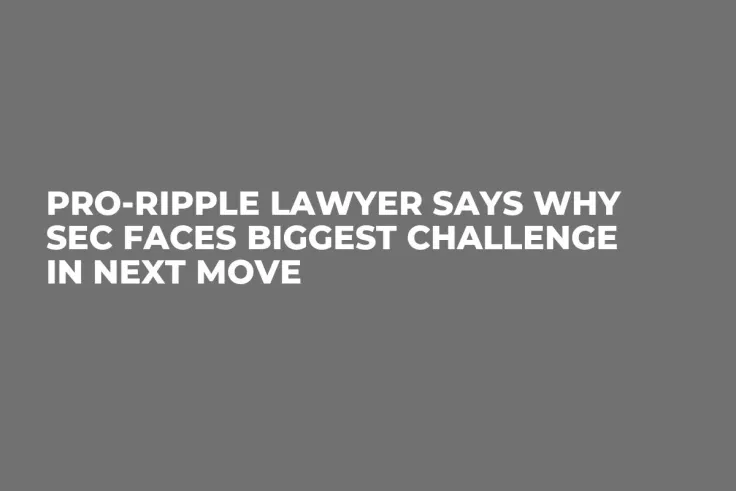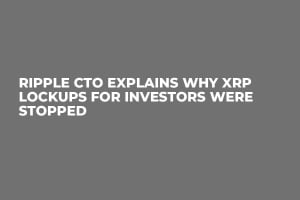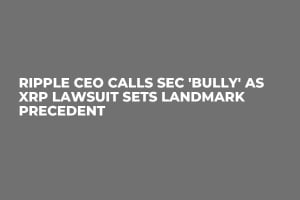
Disclaimer: The opinions expressed by our writers are their own and do not represent the views of U.Today. The financial and market information provided on U.Today is intended for informational purposes only. U.Today is not liable for any financial losses incurred while trading cryptocurrencies. Conduct your own research by contacting financial experts before making any investment decisions. We believe that all content is accurate as of the date of publication, but certain offers mentioned may no longer be available.
CryptoLaw founder John Deaton, who is an XRP holders' attorney, identifies the most difficult hurdle for the SEC going forward in the Ripple lawsuit.
On July 13, Judge Analisa Torres granted summary judgment in favor of Ripple Labs regarding XRP's status as a security.
In response, Gary Gensler, the chair of the Securities and Exchange Commission, stated that he was "disappointed" with the judge's decision that XRP was not a security when sold to individual investors on exchanges. "We’re still looking at it and assessing that opinion," he said.
According to Howey, it is “immaterial” whether the asset or enterprise (ie XRP) is speculative or non-speculative. According to Howey, it is “immaterial” whether the asset itself has intrinsic value or not. ALL that matters is the application of the Howey factors. HARD STOP!
— John E Deaton (@JohnEDeaton1) July 19, 2023Advertisement
Given this, some warned that an appeal from the SEC could be a possibility.
If the SEC decides to take a step ahead by pushing the case to the Court of Appeals for the Second Circuit, Deaton anticipates that the agency might meet a difficult hurdle in challenging the ruling.
According to him, Judge Torres applied the Howey Test strictly to each type of XRP sale the SEC claimed violated the law. The Supreme Court in Howey made it crystal clear that all that matters in an investment contract transaction or scheme is whether the Howey Test is satisfied.
Deaton shared a screenshot of a footnote from the ruling, which reads, "The court holds only that a common enterprise existed between Ripple and the institutional buyers. The court does not reach the question of whether the common enterprise extends to encompass other XRP holders, Defendants Garlinghouse and Larsen, the XRP ecosystem, or any other entities."
Given this, Deaton states that common enterprise might be a difficult hurdle for the SEC if the case goes to the second circuit.
This is because Judge Torres might say that the common enterprise factor is not satisfied between XRP holders and Ripple, or she could rule that consumptive intent is an issue for the jury since the SEC's expert's opinion was excluded.
Deaton pointed out that Judge Torres left open the question of whether programmatic sales on exchanges meet the first and second requirements of the Howey Test.
If the 2nd Circuit reverses the judge's decision on the third factor, all that will happen is that she then applies the first two factors. Deaton added that she could determine the same result by applying the first two factors, which he says is a brilliant move.
Capping his arguments, the CryptoLaw founder pointed out that the SEC lost and that her decision was a sound application of the Howey Test.



 Dan Burgin
Dan Burgin Vladislav Sopov
Vladislav Sopov